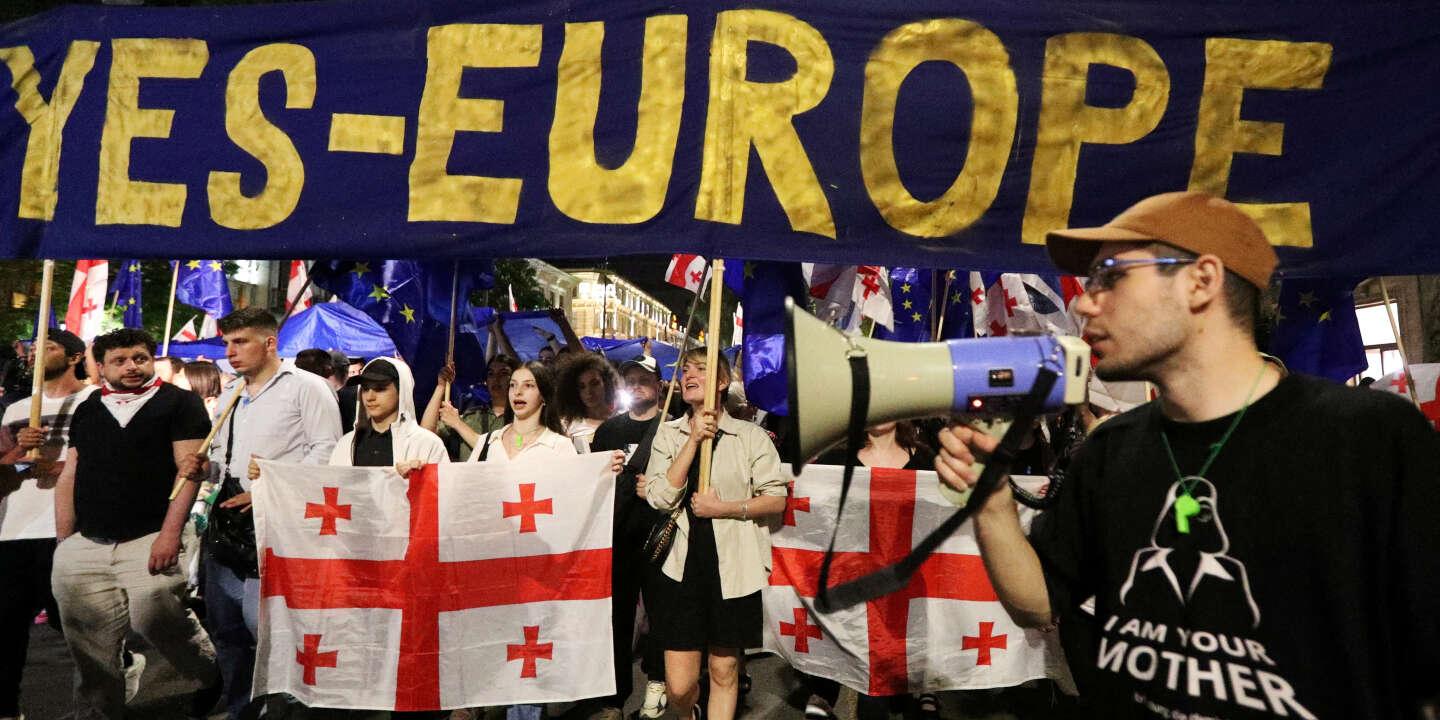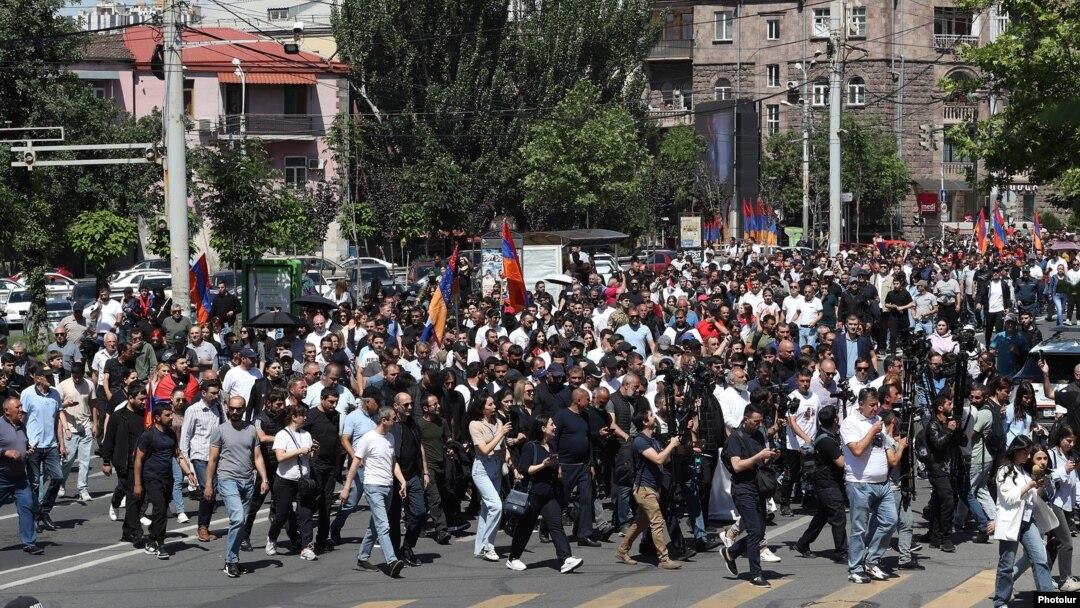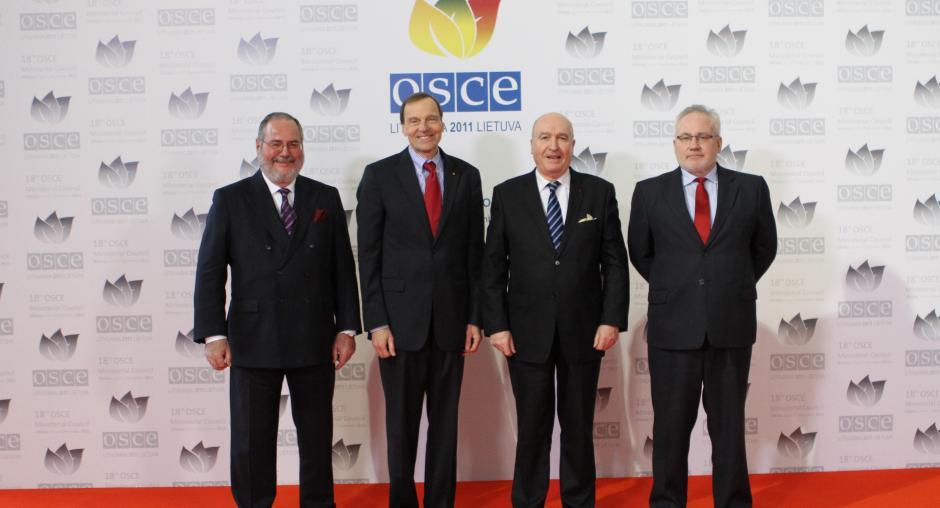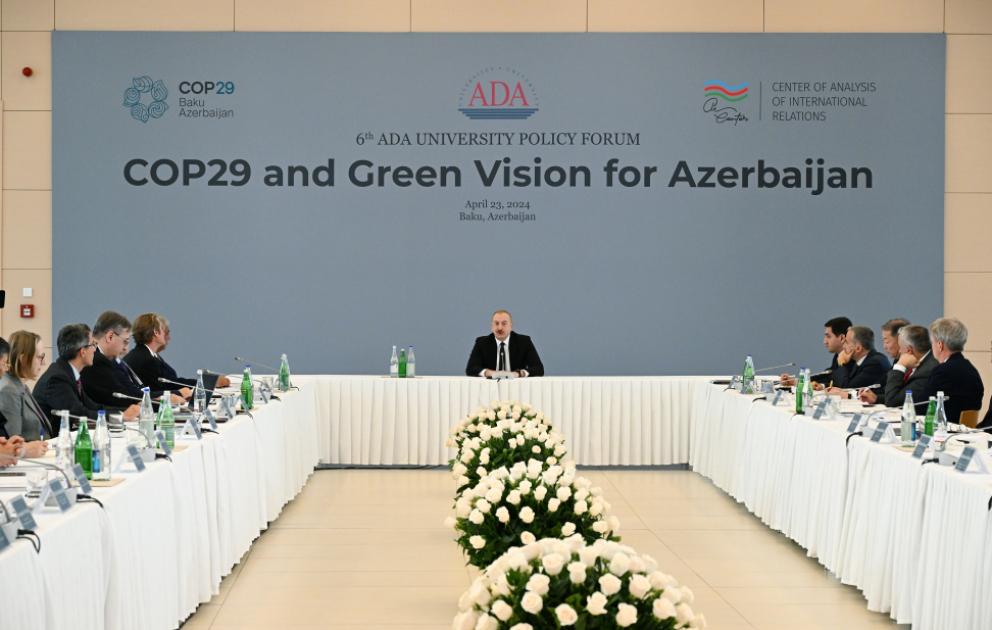Analysis of unfolding protests in Georgia & Armenia amid stability in Azerbaijan Historic chance for South Caucasus peace
The South Caucasus region is experiencing significant political turbulence, with protests in Georgia and Armenia. In Georgia, opposition parties are mobilizing against the law "On the transparency of foreign influence", while in Armenia, demonstrators are voicing their opposition to Prime Minister Nikol Pashinyan's peace efforts and border delimitation negotiations with Azerbaijan.
Georgian protests
In Georgia, the law "On the transparency of foreign influence", allegedly reminiscent of Russia's controversial legislation targeting NGOs and media, has sparked widespread opposition.
Critics argue that the law aims to stifle dissent and curtail democratic freedoms by labeling organizations receiving foreign funding as "foreign agents". The backlash has seen significant street protests, with opposition parties and civil society groups at the forefront.

The Georgian government remains steadfast in its support for the bill, endorsed by the Georgian Speaker despite the president's protest and Western opposition. This escalation may lead to increased political instability and potential clashes with security forces, further complicating the domestic political landscape and straining Georgia's relations with Western allies.
Political challenges & opposition in Armenia
In Armenia, opposition to Prime Minister Nikol Pashinyan's peace initiatives and border delimitation talks with Azerbaijan has sparked significant protests. Critics argue that Pashinyan's efforts may compromise Armenian territorial integrity and national security, especially after Azerbaijan's success in regaining occupied territories during the Karabakh conflict. These concerns have fueled widespread dissent and mobilized various opposition groups.
Despite the intensity of these protests, they have thus far failed to garner substantial domestic or international support. The momentum of the opposition has waned, and the demonstrations have not been effective in pressuring Pashinyan to reconsider or decelerate his peace negotiations with Azerbaijan. The sustained efforts by the protesters have not translated into a significant political shift or forced any substantial changes in the government's approach.
The hopes of Pashinyan's critics that the protests would galvanize a more organized and formidable opposition movement have also dimmed. The lack of a unified and coherent strategy among opposition groups has hindered their ability to mount a serious challenge to Pashinyan's administration. Internal divisions and a lack of broad-based support have further weakened the opposition's impact.

Despite the ongoing protests, Pashinyan appears determined to pursue his diplomatic agenda. He seeks to achieve a breakthrough in relations with Azerbaijan. Pashinyan's government is likely to continue its efforts toward peace and border delimitation, viewing these steps as essential for Armenia's long-term stability and integration into the broader regional and international community.
Russian influence & regional dynamics
Reports of Russian involvement in both the Georgian government's stance and the protests in Armenia warrant scrutiny. Russia has historically exerted significant influence in the South Caucasus, often acting to maintain its strategic interests.
Georgia: There is plausible concern that the foreign influence law is inspired by similar Russian legislation aimed at curbing foreign-funded activities. However, concrete evidence of direct Russian orchestration in the current protests is limited and protesters cannot substantiate their claims with solid arguments.
Armenia: Russia's interest in the Armenian protests is more pronounced. Given Russia's military presence in Armenia and the latter’s membership of the Kremlin-led military bloc and the economic union, Moscow is monitoring the situation closely and may seek to influence outcomes to maintain regional stability on its terms.
The failure of the OSCE Minsk Group
Amidst these protests, speculation abounds about the potential for a historic peace accord between Azerbaijan and Armenia by the year's end. Several factors will influence this possibility, one of them being the international role under the pretext of the OSCE Minsk Group.
For nearly three decades, the OSCE Minsk Group was tasked with mediating the conflict between Azerbaijan and Armenia over Nagorno-Karabakh. Despite the purported efforts of its co-chairs - Russia, France, and the United States - the group failed to achieve a lasting resolution. This prolonged ineffectiveness led both parties, particularly Azerbaijan, to lose faith in the mediating capacity of the group.

From the outset, the Minsk Group faced immense challenges in balancing the interests and perspectives of the conflicting parties. The group's mandate was to facilitate a peaceful and negotiated settlement, yet over the years, its initiatives did not yield substantive progress. Azerbaijan repeatedly criticized the group for its perceived lack of impartiality and concrete results, arguing that the mediators were unable or unwilling to enforce meaningful measures that could lead to a resolution.
One of the primary criticisms levied by Azerbaijan against the Minsk Group was the perceived bias and inaction of its co-chairs. Azerbaijani leadership consistently expressed frustration over what they saw as the group's inability to exert adequate pressure on Armenia to comply with international law and United Nations resolutions calling for the withdrawal of Armenian forces from occupied territories. The lack of tangible outcomes led to a growing sense of disillusionment and skepticism about the group's effectiveness.
In addition to perceived partiality, the Minsk Group was also seen as overly cautious and slow in its diplomatic efforts. This cautious approach often resulted in prolonged negotiations without significant breakthroughs, contributing to the protracted nature of the conflict. As a result, the Minsk Group's credibility and relevance were increasingly called into question.
The final blow to the Minsk Group's standing came during the 2020 Second Karabakh War. Azerbaijan launched a military campaign that resulted in the recapture of significant territories. The conflict's swift and decisive nature underscored the Minsk Group's inability to facilitate a peaceful resolution. In the aftermath, Azerbaijani President Ilham Aliyev openly rejected the group's claims of success and called for its dissolution, arguing that the group's mandate was no longer relevant in the new geopolitical context.
Azerbaijan's calls for the official cancellation of the Minsk Group resonated with its broader criticism of international mediation efforts that failed to produce results. This stance highlighted a shift towards more direct and unilateral approaches to conflict resolution, driven by a lack of confidence in traditional diplomatic mechanisms.
Domestic political stability - a crucial factor for peace negotiations
Domestic political stability in Baku and Yerevan is crucial for spearheading efforts to resolve the conflict between the archenemies and signing a peace deal. In Azerbaijan, the situation is favorable for a peace deal with full support from the government and the public. However, this is not the case in Armenia.
The willingness and ability of both Armenian and Azerbaijani leaders to negotiate and implement a peace accord will depend significantly on their domestic political stability and public support.
Azerbaijan's political landscape
In Azerbaijan, President Ilham Aliyev enjoys a strong political position and broad public support, especially following the country's military successes in the 2020 Second Karabakh War. The recapture of territories previously occupied by Armenian forces has bolstered national pride and solidified the government's standing in the nation.

This favorable domestic environment provides the Azerbaijani leadership with the political capital and stability needed to pursue and implement a peace deal. The government can act decisively, backed by a unified public sentiment that supports efforts to resolve the long-standing conflict.
Armenia's political challenges
Conversely, Armenia faces significant political challenges that complicate its ability to fully engage in and implement peace negotiations. The aftermath of the 2020 war left the country in a state of political turmoil, with widespread public discontent and opposition to the current government.
The defeat in the war and the subsequent loss of territories have been sources of national trauma and political instability. Frequent protests and political infighting have undermined the government's authority and ability to make bold decisions necessary for peace negotiations.
Pashinyan's administration is caught between external pressure to negotiate and internal pressure from opposition groups and segments of the public who are deeply skeptical of any concessions. This internal division hinders the Armenian leadership's capacity to present a united front in peace talks and to reassure the population about the benefits of a potential peace deal. Without a stable and supportive domestic political environment, Armenia's leaders find it challenging to make and sustain the compromises necessary for a lasting resolution.
The unfolding protests in Georgia and Armenia reflect deep-seated political and societal tensions within both countries. While the outcomes remain uncertain, the potential for significant political change is high. The credibility of Russian influence is plausible but requires further evidence for definitive conclusions. The broader regional dynamic, including the potential for a peace accord between Baku and Yerevan, hinges on a complex interplay of domestic and international factors.








